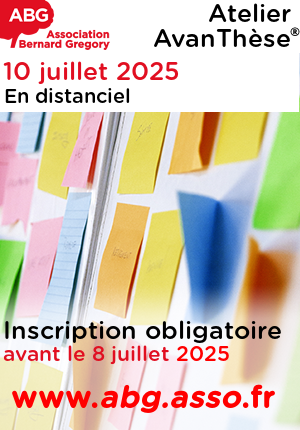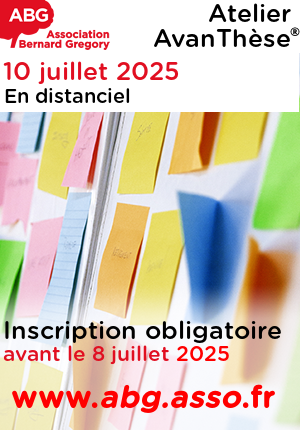Data-Driven exploration of Ductile fracture response
| ABG-132651 | Thesis topic | |
| 2025-06-25 | Cifre |
- Engineering sciences
Topic description
Context and Objective
The French Alternative Energies and Atomic Energy Commission (CEA) plays a crucial role in ensuring the safety of nuclear installations such as Pressurized Water Reactors (PWRs). One key aspect of this mission is the analysis of severe accident scenarios, such as the Loss of Coolant Accident (LOCA). During such events, the sudden depressurization of the primary circuit can lead to structural failures, including pipe whip [1]. To accurately predict these phenomena and improve safety margins, a detailed understanding of the material behavior involved is essential.
Stainless steel 316 is widely used in the nuclear industry—particularly for piping systems—due to its excellent mechanical properties and resistance to corrosion and irradiation. Its failure mode is known to be ductile, meaning it is preceded by significant plastic deformation. Such behavior can be influenced by various factors, including temperature, strain rate, and environmental conditions. Hence, the project aims to develop a high-performance computing (HPC)-scalable tool designed to construct a reliable database that will serve as a foundation for assessing and developing constitutive behavior models, particularly for large-strain plasticity and ductile fracture.
The development of this database will rely on the recently developed Data-Driven Identification (DDI) paradigm, which enables the estimation of balanced stress fields from Digital Image Correlation (DIC) for arbitrary geometries and loading conditions. By doing so, complex mechanical tests can be analyzed without postulating a specific mathematical expression for the material response, while also enabling the extraction of relevant mechanical information in the immediate vicinity of the fracture.
Promising results have already been obtained in several contexts: hyperelastic materials [2], and small-strain (rate-dependent) plasticity [3]. The main goal of this thesis is therefore to extend the DDI framework beyond its current limitations—including finite strains, strain localization, softening behavior, and 3D deformation states—until it becomes applicable to ductile failure experiments on 316L stainless steel.
References
[1] Serguei Potapov, Pascal Galon. Modelling of Aquitaine II pipe whipping test with the EUROPLEXUS fast dynamics code. Nuclear Engineering and Design, 2005, 235(17–19), pp. 2045–2054.
[2] Dalémat, M., et al. "Measuring stress field without constitutive equation." Mechanics of Materials, 136 (2019): 103087.
[3] Vinel, A., Seghir, R., Berthe, J., Portemont, G., & Réthoré, J. (2024). Experimental characterization of material strain-rate dependence based on full-field Data-Driven Identification. International Journal of Impact Engineering, 194, 105083.
Starting date
Funding category
Funding further details
Presentation of host institution and host laboratory
Les chercheurs de Centrale Nantes déploient une approche interdisciplinaire qui s'organise autour de trois enjeux majeurs autour de la croissance et de l'innovation : l'usine du futur, la transition énergétique et l'ingénierie de la santé.
PhD title
Country where you obtained your PhD
Institution awarding doctoral degree
Candidate's profile
The candidate must have:
A Master's degree (or equivalent) in engineering or mechanics (Bac+5) ;
Strong knowledge in solid mechanics, continuum mechanics, and finite element methods ;
Knowledge of DIC (Digital Image Correlation) and fracture mechanics would be a plus ;
A strong interest in programming, particularly in Python ;
A keen interest in both numerical and experimental mechanics ;
Scientific rigor and curiosity ;
Good written and oral proficiency in English.
Vous avez déjà un compte ?
Nouvel utilisateur ?
Get ABG’s monthly newsletters including news, job offers, grants & fellowships and a selection of relevant events…
Discover our members
 CESI
CESI  Nokia Bell Labs France
Nokia Bell Labs France  Laboratoire National de Métrologie et d'Essais - LNE
Laboratoire National de Métrologie et d'Essais - LNE  Groupe AFNOR - Association française de normalisation
Groupe AFNOR - Association française de normalisation  CASDEN
CASDEN  MabDesign
MabDesign  Généthon
Généthon  ASNR - Autorité de sûreté nucléaire et de radioprotection - Siège
ASNR - Autorité de sûreté nucléaire et de radioprotection - Siège  MabDesign
MabDesign  Tecknowmetrix
Tecknowmetrix  ANRT
ANRT  Aérocentre, Pôle d'excellence régional
Aérocentre, Pôle d'excellence régional  TotalEnergies
TotalEnergies  SUEZ
SUEZ  Institut Sup'biotech de Paris
Institut Sup'biotech de Paris  PhDOOC
PhDOOC  ONERA - The French Aerospace Lab
ONERA - The French Aerospace Lab  ADEME
ADEME  Ifremer
Ifremer







